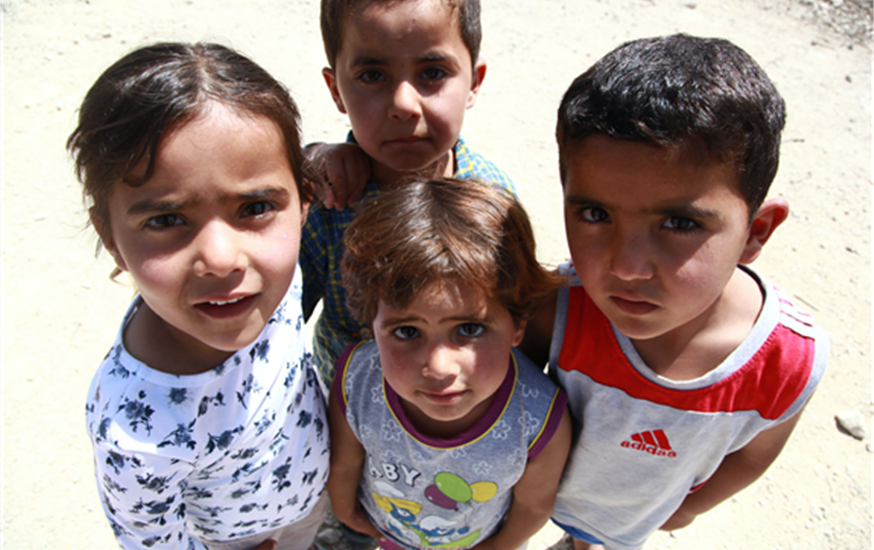- May 18, 2022
- Posted by: humanitarianweb
- Category: Humanitarian News

Current funding is insufficient to meet increasing humanitarian needs in Syria, the senior United Nations official in that country said in a briefing to the Security Council today, as members diverged on the appropriate modalities for delivering existing aid to help the millions suffering across the country.
Martin Griffiths, Under-Secretary-General for Humanitarian Affairs and United Nations Emergency Relief Coordinator, said that, whereas pledges totalled nearly $6.7 billion at last week’s Brussels Conference, those commitments represent less than half of the total funding requirement for 2022.
He emphasized that the underfunding will force humanitarian partners to make difficult choices in their responses, citing the World Food Programme’s (WFP) warning that further cuts to its programme could materialize by July due to rising food prices and stagnant funding. “It is now critical that the generous pledges announced in Brussels be converted into early disbursals of funding.”
Outlining conditions on the ground, he reported that civilians continue to be affected by air strikes, shelling, detainment, critically low water levels, electricity shortages and eroding purchasing power. He noted that on 16 May, the fourth cross-line convoy delivered food assistance to people in north-west Syria, adding that plans for a fifth delivery are under way. However, cross-line humanitarian access cannot replace the size or scope of the massive cross-border operation, he stressed. With the Council’s authorization of cross-border assistance expiring in just over six weeks, failure to renew it “will disrupt life-saving aid for the people living in north-west Syria, including more than a million children”, he warned.
Also briefing was Farida Almouslem of the Syrian American Medical Society, who detailed her experience working as an obstetrician-gynaecologist in Aleppo from 2011 until 2016. “Syrians throughout the country are suffering, and every one of us has an obligation to help,” she emphasized. Humanitarian needs continue to grow while funding decreases, and additional funds are needed to prevent further hospital closures and provide critical nutrition assistance. Calling upon the Council to renew the cross-border resolution so that doctors and humanitarian workers have the medicine and tools they need to help their patients, she said it must also require proper monitoring and oversight “so that what resources do go into Syria are properly utilized”.
In the ensuing debate, many Council members stressed the need to use all modalities to deliver aid to the millions of Syrians in need, citing the critical, irreplaceable nature of the cross-border aid mechanism. Others called for expanded cross-line deliveries to complement and eventually replace that mechanism. Speakers also detailed national aid commitments made at last week’s Brussels Conference, even as others underscored the need to avoid politicizing the humanitarian issue and to delink development assistance from political progress.
The Russian Federation’s representative, noting that the anaemic support for four cross-line convoys from Damascus over the course of a year “can hardly be called a success”, said the main problem is that implementation of early recovery and reconstruction projects are contingent on the political considerations of donor countries. Meanwhile, efforts to safeguard the cross-border mechanism at any cost increasingly resemble the parents of a lazy, negligent student facing suspension from school. “Nothing good comes of such spoiled children,” he said, emphasizing that the United Nations continues to ignore the devastating effects of the unilateral sanctions imposed on the Syrian people by the United States and the European Union.
Brazil’s representative echoed that point, calling for a thorough, permanent review of the consequences of unilateral sanctions on civilians amidst the acute economic crisis and escalating hunger. The international community must continue to work for predictable, regular delivery of aid, both through cross-line and cross-border operations, he said, emphasizing the need for detailed monitoring of all humanitarian operations.
The representative of the United States, however, pointed out that whereas the 16 May cross-line delivery provided food for 43,500 people, United Nations cross-border aid through Bab al-Hawa provides food for 1.4 million people in a typical month. “There is just no comparison,” she emphasized, urging the Council not only to renew the cross-border mandate, but also to increase the number of crossing points to meet the rising demand for humanitarian aid. The United States will provide $800 million in new humanitarian assistance to Syria, she said, while stressing that no amount is enough if it cannot reach those in need.
Syria’s representative emphasized that, whereas the Government looks forward to enhancing cross-line aid delivery, the so-called cross-border mechanism continually violates Syria’s sovereignty and is gravely defective. He went on to spotlighted his country’s 30 April presidential decree of amnesty, saying it seeks to improve the humanitarian situation, consolidate national reconciliation and facilitate the return of refugees and displaced persons to their homeland. Calling for an objective, balanced consideration of the Government’s measures in that regard, he urged “some countries” to abandon their erroneous policies and engage with the Syrian Government.
Also speaking today were representatives of Norway (also speaking for Ireland), Ghana (also speaking for Gabon and Kenya), United Kingdom, France, Albania, India, China, Mexico, United Arab Emirates, Iran and Turkey.
